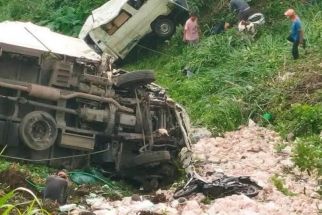Last-ditch move for sugar industry
Most sugar farmers hardly understand or pay much attention to questions about the sugar tariff. Thus, most of them simply go about unaware that the bounds of hell are closing in on them by next year and 2010 when the tariff on sugar goes down to 28 next year, and from zero to five percent in 2010. And that’s only next year.
Actually, according to sugarman Bernard Trebol of the Confederation of Sugar Producers Associations and the Philippine Sugar Research Foundation (Philsurin), the industry is on threshold of a possible death knell.
Unless the President or the government takes up the issue to ask the ASEAN Trade Fair Council to raise sugar from the sensitive to the “highly sensitive list,” that becomes inevitable.
Otherwise, Trebol said, we could find ourselves flooded by imported sugar, most likely from
Unless we convince the AFTA Common Effective Preferential Treatment (CEPT), Thai sugar will flood the country.
He also added that Thai sugar farmers have their government set domestic prices to preclude losses and ensure profit for the sugar farmers. They are also provided a credit line from state-run banks to cover their high production cost.
Filipino farmers, on the other hand, receive no support or subsidy from the government, sighed Trebol.
The expected tariff reduction will put Filipino sugar farmers at having to compete with subsidized imported Thai sugar in our own market without any support from the government. “This is not only unjust, unfair and inequitable, it is also downright suicidal for the sugar industry,” fumed the sugar leader.
The situation is compounded by the fact that this year’s surplus production of 450,000 metric tons is the highest in almost 26 years. The country has been producing excess sugar for the last five years, since crop year 2002-2003 with an average surplus of 171,000 metric tons per crop year. Thus the country has not imported sugar since that time. As a matter of fact, the
When ASEAN-CEPT was created, the
Trebol added that the industry has been advocating since 2005 to raise it to the highly sensitive list to arrest the spiral to 28 percent next year and five percent in 2010.
The only ray of hope is that sugar leaders had reportedly discussed the issue with President Gloria Macapagal-Arroyo who “understands our problem with tariff reduction and supports our move to transfer sugar to the highly sensitive list.” So with agriculture Secretary Arturo Yap who is behind the industry as it calls for the transfer of sugar to the highly sensitive list.
The sugar industry, Trebol said, is asking time to diversify to be more responsive to the food supply and energy problems of the country. Sugar mills, he added, are eyeing investments in co-generation to provide an alternative source of electrical power. And the industry is going into ethanol production in response to the call by the President to address the rising cost of fuel.
But if there is less sugar production, the ethanol plants and co-generation facilities will not find it feasible to operate, Trebol said as he pointed out the obvious implication of the free flow of imported sugar.
He cited the case of
“Unable to do anything, ASEAN condoned the act of
“That is a classic example of gumption and political will – and
I’ll write more about this in the next column. This is a question that affects the source of livelihood not only of the sugar farmers but also of some 500,000 sugar workers.
- Latest
- Trending































